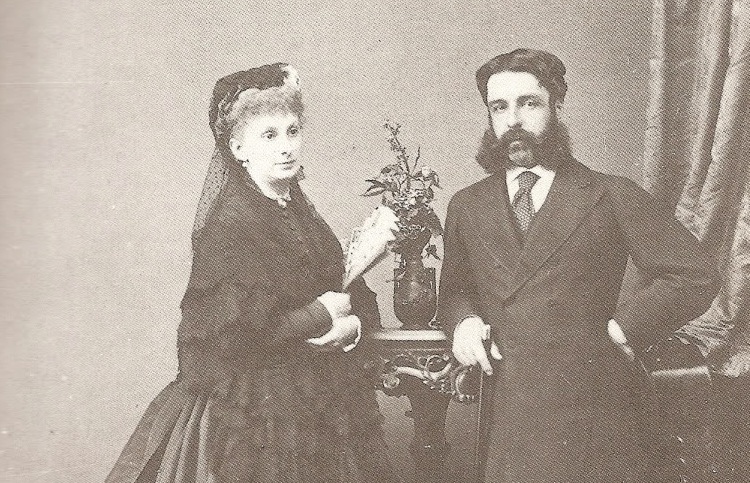Luis Ayllón
The government has already given the go-ahead to the request for a total of 27 new ambassadors, not including those from important embassies such as the United Kingdom and Greece, according to The Diplomat.
The Council of Minisers gave the go-ahead yesterday and, from now on, the various countries will be asked to give their assurances and will take time to grant them, if they do not see any objections. The incorporation into the various posts will therefore depend on when the diplomatic charters arrive, which, in most cases, will be during the summer months.
In addition to the names provided by The Diplomat, yesterday it was learned that the Government has chosen Íñigo de Palacio as ambassador to the United Arab Emirates, who since 2014 was director of Institutional Relations at Indra, after having been ambassador to Serbia between 2008 and 2011 and to Chile between 2011 and 2014.
To take charge of the Embassy in Angola, the Executive has chosen Manuel Lejarreta, current secretary general of the Spain-United States Council Foundation and former ambassador to Guatemala, where he was between 2011 and 2015.
Juan Ignacio Sell, currently “number two” at the Embassy in Morocco and former ambassador to South Africa between 2012 and 2017, will be the new ambassador to Nigeria.
Also in Sub-Saharan Africa, Javier Gutiérrez Blanco, currently deputy director general of the United Nations, will head the embassy in Ghana; Rafael Soriano, who is director of International Relations at the Cervantes Institute, will be the ambassador to Côte d’Ivoire; and Antonio González Zavala, who is currently posted in Mexico, will take charge of the embassy in Guinea Bissau.ç
Jorge Urbiola, currently deputy director general for Eastern Europe and Central Asia, will go to Kazakhstan, and Ricardo Losa, currently deputy director general for Southeast Asia and the Pacific, will go to Afghanistan.
José Luis Lozano, who is Deputy Director General for External Relations in the Secretary of State for the EU, has been chosen as ambassador to North Macedonia, and Sergio Cuesta, currently assigned to the International Department of the Presidency of the Government, will head the embassy in Haiti.
Finally, Miriam Álvarez de la Rosa, currently posted in Lisbon, will go to Mauritania.
As The Diplomat has already reported, Elena Gómez Castro, director general of Defence Policy (Digenpol) in the Ministry of Defence, will be the new Spanish ambassador to the EU’s Political and Security Committee (COPS), a post for which, as it is a multilateral body, it is not necessary to apply for a placet.
The government has not yet taken a decision on who will take charge of six other embassies that are either vacant, as is the case of the UK, or have been put out to tender. Among these is that of Greece, one of the most sought-after and for which some sources cited the name of Ion de la Riva, which could not be confirmed.
Furthermore, the new ambassadors to Jordan, Lebanon and Gabon are not yet known.
Although it was widely believed that the Minister of Foreign Affairs, Arancha González Laya, wanted to appoint at least ten women to the ambassadorial posts, this figure has not yet been reached.
In addition to the two women nominated for the COPS and Mauritania, there are the already known names of Ana Salomon, as ambassador to Israel; Lorea Arribalzaga, to Slovakia; Teresa Lizaranzu, to Bosnia and Herzegovina; Cristina Díaz, to Kenya; and Carmen Castiella, to Paraguay.
The rest of the nominees, as reported by The Diplomat, are Camilo Villarino (Russia), Alfredo Martínez (Canada); José María Ridao (India), Ángel Losada (Iran), Pedro Martínez Avial (Iraq), Jorge Hevia (Saudi Arabia), Antonio Pérez-Hernández (Dominican Republic), Raimundo Robredo (Thailand), Felipe de la Morena (South Africa), Francisco Aguilera (Indonesia) and Guillermo Corral (Estonia).
This unblocks the replacement of ambassadors, which was called for in November last year and on which González Laya had not taken a decision, despite having had the proposals made by the team of senior officials from the Ministry in charge of presenting the shortlists for more than five months, following an examination of the applications.
This will resolve cases such as that of the embassy in India, which has been vacant for more than seven months due to the retirement of its previous incumbent, but not, for now, that of the diplomatic representation in London, which has been vacant since the beginning of February, also due to the retirement of the ambassador.
For the post in the UK, the final decision is certain to be taken by the president of the government, Pedro Sánchez. Some speculation suggests that he could opt for a ‘political’ ambassador, i.e. one who does not belong to the diplomatic career, as he did last time in Cuba, when he appointed Ángel Martín Peccis. There is also talk that it could be a woman, and the name of Irene Lozano, former Secretary of State for Global Spain and former Secretary of State for Sport, who is very close to Sánchez and is currently a member of the Madrid Assembly, has once again been mentioned.






